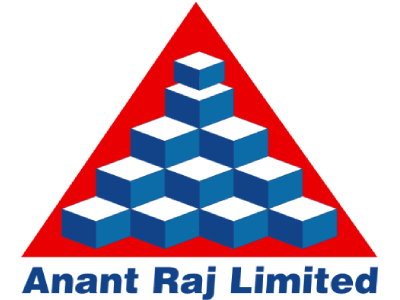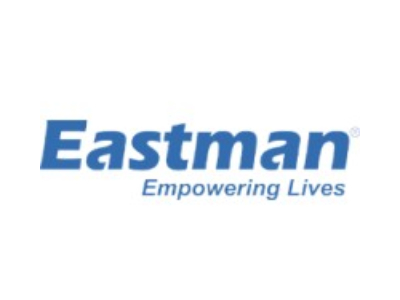Accounting
Accounting plays a crucial role in corporate law as it provides a standardized framework for recording, reporting, and analyzing financial information of a company. It helps ensure transparency, accuracy, and compliance with legal and regulatory requirements.
Accounting in corporate law involves the preparation and presentation of financial statements, including the balance sheet, income statement, and cash flow statement. These statements provide a snapshot of the company’s financial position, performance, and cash flows.
Accounting in corporate law requires adherence to generally accepted accounting principles (GAAP) or International Financial Reporting Standards (IFRS). These standards provide guidelines and rules for recognizing, measuring, and disclosing financial transactions and events.
Free Call Back by our Expert
Here are some key characteristics of Accounting
- Overview
- Benefit
Financial Accounting: This branch of accounting focuses on preparing financial statements, such as the income statement, balance sheet, and cash flow statement. Financial accounting follows generally accepted accounting principles (GAAP) or international financial reporting standards (IFRS) to ensure consistency and comparability in financial reporting.
Managerial Accounting: Managerial accounting is concerned with providing internal financial information to assist managers in making operational and strategic decisions. It involves analyzing costs, budgeting, performance measurement, and forecasting to support effective management and control of resources.
Auditing: Auditing involves examining and evaluating financial records and statements to determine their accuracy, reliability, and compliance with relevant laws and regulations. Auditors are independent professionals who provide assurance to stakeholders about the fairness and reliability of financial information.
Accounting provides numerous benefits to organizations and individuals. Some key benefits of accounting include:
Financial Decision Making: Accounting information helps individuals and organizations make informed financial decisions. It provides data on revenues, expenses, assets, liabilities, and cash flows, enabling stakeholders to assess profitability, evaluate investment opportunities, and determine the financial feasibility of projects or initiatives.
Performance Evaluation: Accounting allows organizations to measure and evaluate their financial performance. By analyzing financial statements and performance metrics, such as return on investment (ROI) or gross profit margin, businesses can assess their efficiency, identify areas for improvement, and compare their performance to industry benchmarks or competitors.
Planning and Budgeting: Accounting helps in the process of financial planning and budgeting. It provides historical financial data and insights that aid in forecasting future revenues, expenses, and cash flows. This information is crucial for setting financial goals, creating budgets, and allocating resources effectively.
Compliance and Legal Requirements: Accounting ensures compliance with financial regulations and legal requirements. Accurate and transparent financial reporting is essential for meeting tax obligations, fulfilling regulatory obligations, and satisfying stakeholders’ expectations. It helps prevent fraud, supports audits, and enhances the credibility and trustworthiness of financial information.
Financial Transparency: Accounting promotes transparency in financial transactions and reporting. By maintaining accurate records and following accounting principles and standards, organizations demonstrate their commitment to transparency and accountability. This transparency builds trust among stakeholders, such as investors, creditors, and customers.
Access to Capital: Accounting plays a crucial role in accessing capital from external sources. Investors and lenders rely on financial statements and reports to assess an organization’s financial health and creditworthiness. Accurate and reliable accounting information increases the chances of securing loans, attracting investors, and obtaining favorable terms for financing.
Risk Management: Accounting helps identify and manage financial risks. By monitoring financial transactions, analyzing financial data, and implementing internal controls, organizations can identify potential risks, such as fraud or financial mismanagement. This enables proactive measures to mitigate risks and safeguard the organization’s assets and reputation.
Business Valuation: Accounting provides a framework for valuing businesses. Financial statements, cash flow projections, and other accounting information are used in various valuation methods, such as discounted cash flow (DCF) analysis or price-to-earnings (P/E) ratio analysis. Accurate accounting records contribute to a more accurate valuation, whether for mergers and acquisitions, investment decisions, or determining the value of an organization.
In summary, accounting benefits individuals and organizations by facilitating financial decision-making, performance evaluation, compliance, transparency, access to capital, risk management, and business valuation. It is an indispensable tool for managing and understanding the financial aspects of any entity.
Company Registration in India
To register a company in India, you need to follow the guidelines and procedures set by the Ministry of Corporate Affairs (MCA). The registration process typically involves several steps, which I’ll outline below:
Obtain Digital Signature Certificate (DSC): The first step is to obtain a digital signature certificate for the proposed directors of the company. The DSC is required for online filing during the registration process.
Obtain Director Identification Number (DIN): Each director of the company must have a DIN. You can apply for DIN online through the MCA portal by submitting the necessary documents and fees.
Name Reservation: Once you have obtained the DSC and DIN, you need to choose a unique name for your company and submit it to the MCA for approval. You can do this through the RUN (Reserve Unique Name) service available on the MCA portal. The name should comply with the naming guidelines and should not be similar to any existing company or trademark.
Prepare Incorporation Documents: After the name is approved, you need to prepare the incorporation documents, including the Memorandum of Association (MoA) and Articles of Association (AoA). These documents define the company’s objectives, rules, and regulations.
Filing of Incorporation Documents: Once the incorporation documents are ready, you can file them online with the MCA. The documents include Form SPICe (Simplified Proforma for Incorporating Company Electronically) along with the required attachments.
PAN and TAN Application: Along with the incorporation documents, you need to apply for a Permanent Account Number (PAN) and Tax Deduction and Collection Account Number (TAN) from the Income Tax Department.
Certificate of Incorporation: After reviewing the documents, if everything is in order, the Registrar of Companies will issue a Certificate of Incorporation. This document signifies the formal registration of your company.
Apply for Goods and Services Tax (GST) Registration: Depending on the nature of your business, you may need to register for GST, which is a tax levied on the supply of goods and services. You can apply for GST registration online through the GST portal.
It’s important to note that the registration process and requirements may vary depending on the type of company you want to register (e.g., private limited, public limited, one person company, etc.) and the specific circumstances of your business. It’s advisable to consult with a professional, such as a company secretary or a chartered accountant, to ensure compliance with all legal requirements and to guide you through the registration process.
Customer Reviews
VITIKA MAKAJI
Trademark Objection
- Verified Customer
04 May 2023
Good follow up.
SWETHA D
DIN eKYC Filing
- Verified Customer
12 May 2023
Goood
HARIHARAVIJITHA M
Trademark Registration
- Verified Customer
04 May 2023
nice
VITIKA MAKAJI
Trademark Objection
- Verified Customer
04 May 2023
Good follow up.
Our Clients







